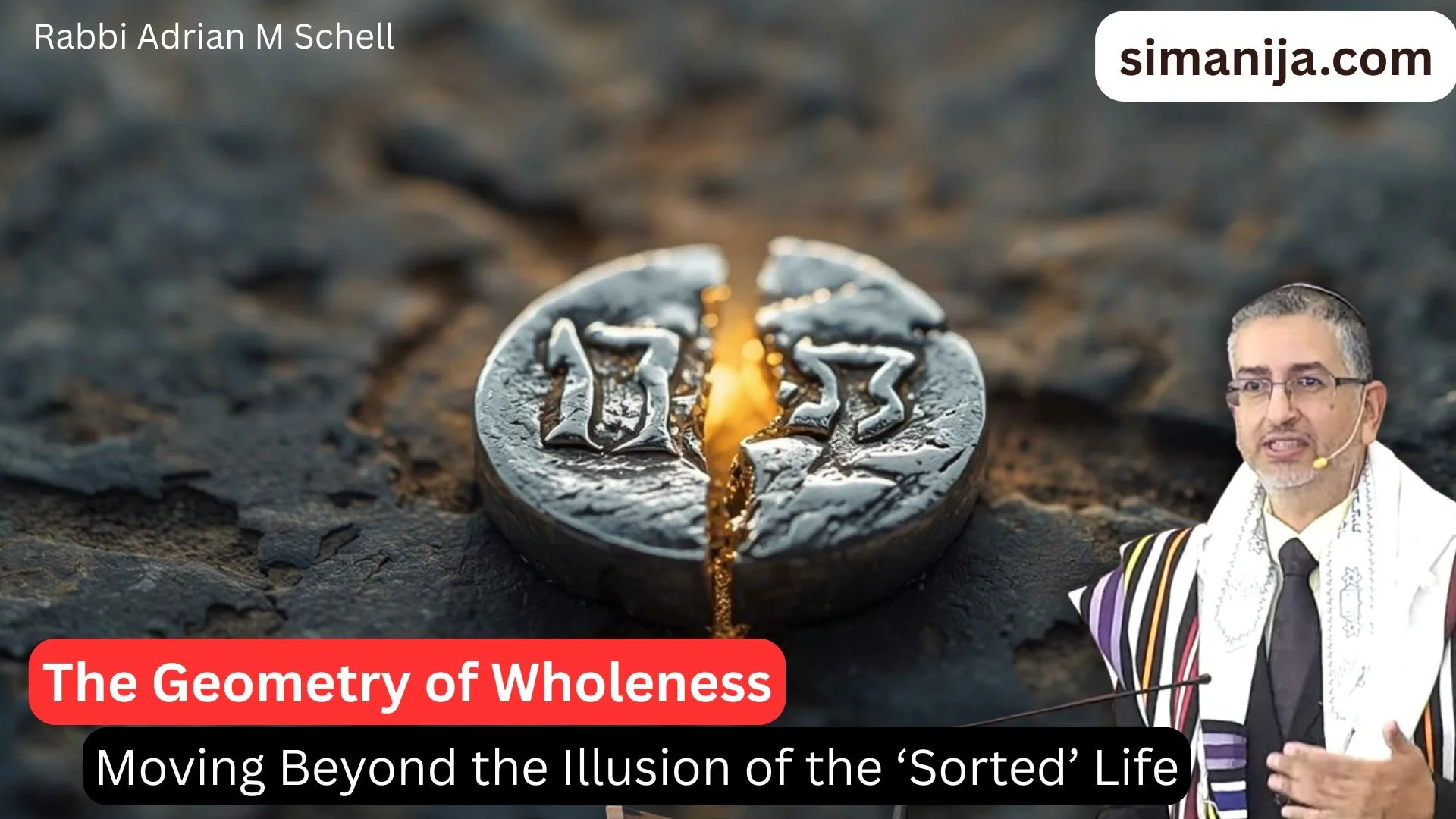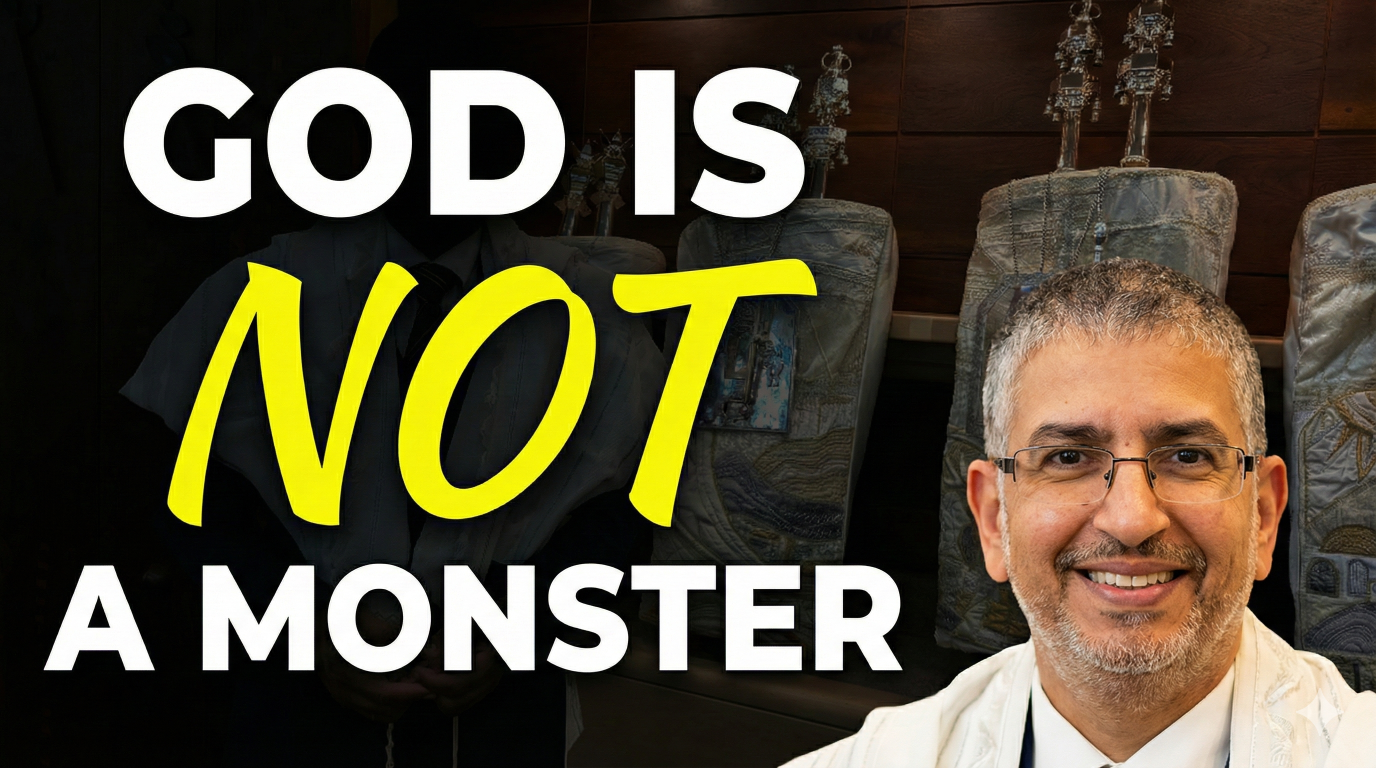
The Geometry of Wholeness
In a world that prizes the "finished" individual, the Torah offers a provocative alternative: the half-shekel. By requiring a contribution that is intentionally incomplete, the mitzvah suggests that we cannot arrive before the Divine entirely on our own. Rabbi Adrian explores how our modern obsession with self-reliance can lead to isolation, and why the "grammar of connection" found in our civil laws is the true key to a holy society. To be a community of half-shekels is to admit that our gifts are only complete when they are shared.

God is Not a Monster
How do we find a meaningful Jewish response to the Sydney terror attack? In this week's sermon on Parashat Mikeitz, Rabbi Adrian (Wimbledon Synagogue) challenges the idea that tragedy is part of a divine script. If we claim that everything happens for a reason, we risk portraying a "Puppeteer God" who is cruel. Instead, we explore why God is not a monster and how Jewish theology calls us to look for the Divine not in the tragedy itself, but in our absolute refusal to accept evil created by humans. This video explores the story of Joseph, the limits of human control, and how to maintain faith when the illusion of safety shatters.

Our Civic Covenant: Faith and Democracy
In a time of deep societal division and rising anxiety, Rabbi Adrian Schell delivers a powerful address for Civic Shabbat, "A Covenant of Courage."Drawing on the ancient call to Abraham in Parashat Lech Lecha and the prophet Micah's vision of peace, Rabbi Schell explores the urgent challenge of our time: the breaking of our "civic covenant". He confronts the corrosive effects of populist language and the resurgence of antisemitism, arguing that these are not just political issues, but a profound moral crisis that threatens the soul of democracy itself.This sermon is a call to reject the politics of grievance and instead answer the timeless call to "go forth, not to conquer, but to kindle". It is a powerful reminder that in the face of fear, our greatest strength lies in our shared commitment to decency, justice, and one another.

How Can We Rejoice? A Sukkot Message Two Years After October 7th
My sermon for Erev Sukkot addresses a direct and painful collision in the Jewish calendar: the beginning of 'z’man simchateinu', the season of our joy, falls on the exact second anniversary of the October 7th atrocities. It explores how the sukkah itself, with its flimsy walls and lesson in vulnerability, will not let us hide from this echo. This year, those walls are a stark reminder of the vulnerability imposed on so many. The sermon grapples with how we can possibly celebrate in the face of this memory, the ongoing hostage crisis, and the fresh grief from the recent antisemitic attack in Manchester. The message redefines Sukkot's joy not as a distraction, but as an act of defiance, resilience, and sacred memory—a way to honour those who no longer can, by choosing to build, gather, and sing because we remember.

What Do You Hear When the World Comes In?

The Pain of Being Unseen: A Rosh Hashanah Message of Hope and Recognition

When Conscience and Command Collide: Faith and Ethics in the Akedah (Binding of Isaac) Story

The Commandment of Joy

700 DAYS

A travelling companion for Elul - Psalm 27

False Prophets and Hard Conversations

From Sun Loungers to Soul Searching

Parashat Balak: Spiritual audacity

Miriam's Silence, Our Voice
"Miriam died there and was buried there. The community had no water, and they assembled against Moses and Aaron." (Numbers 20:1-2)

Parashat Korach: When Cain Speaks Again

Marching With the Sound of Hope

“When the Dust Speaks: A Reflection for Pride Month”
The dust of the sanctuary says: You belong here too.

Finding the Way Back from the Wilderness
We know the wilderness well in our tradition. It's the place where Israel wandered, lost and disoriented. A place of testing and trial, but also of revelation. Sinai happened in the wilderness, not in the comfort of a promised land. Elijah found God not in the fire or the storm, but in the still small voice, alone, broken, and afraid in the desert.So, what does it mean for someone today to find themselves in such a wilderness?

The Sabbath of the Land, the Sabbath of the Soul
The Sabbath and Shmita teach us that the land is not merely our resource, but our partner in God's covenant—a caregiver that Resh Lakish likens to a devoted handmaiden raising the king's children. When we honour the earth's need for rest, we rediscover our own worth beyond productivity, learning to breathe not as owners, but as kin in a world yearning to be whole.

What Makes Us Whole?
In Parashat Emor, we find one of the Torah’s more difficult passages — a section that limits which kohanim, which priests, can serve at the altar. A priest with a visible difference — blind, lame, injured, or with a disfigurement — is instructed not to offer the sacred sacrifices.To modern ears, this can feel jarring. It brushes up against our values of equality, inclusion, and dignity. But maybe we can approach this not as a closed door but as a doorway into deeper conversation.
